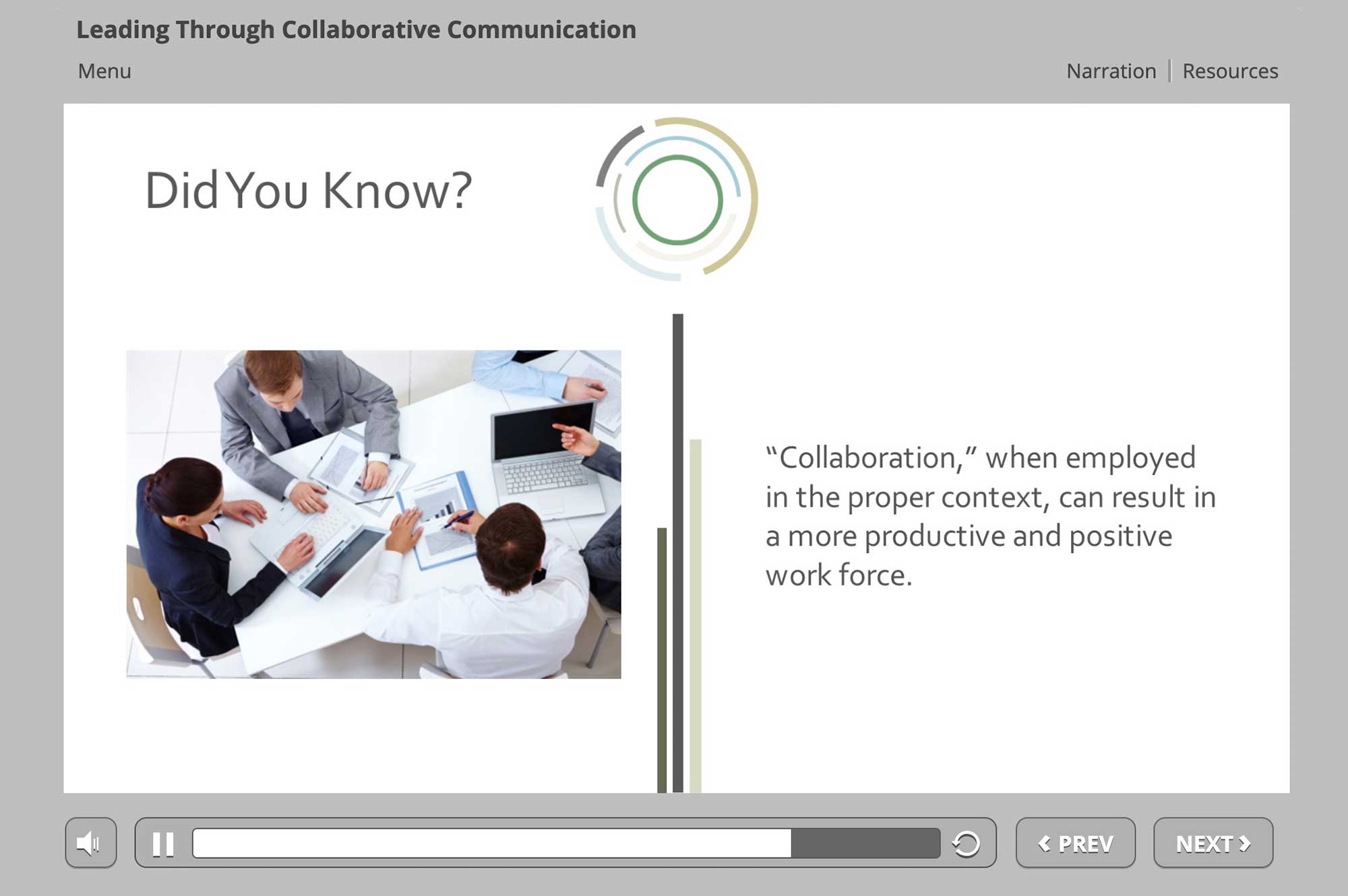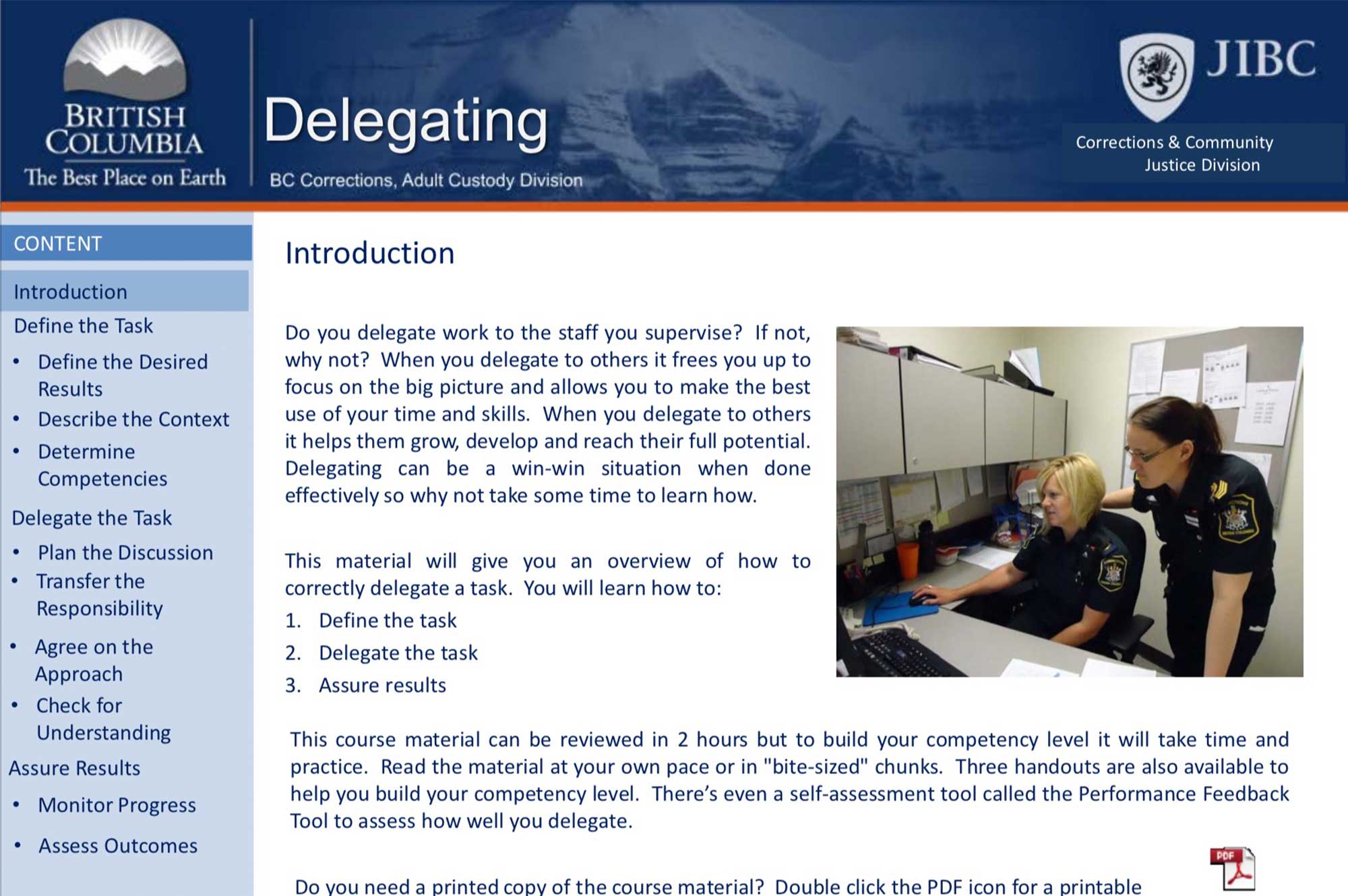Collaboration in the workplace is when two or more people (often groups) work together through idea sharing to accomplish a common goal.
It is simply teamwork taken to a higher level and it consists of valuing the diverse perspectives of others while fostering positive relations through team collaboration and trust. Leaders demonstrating strength in collaboration build a culture that supports creating and nurturing strategic external partnerships. They work closely in conjunction with new and existing partners to achieve goals for the greater good of the organization.
Fostering collaboration in the workplace provides greater access to the skills and strengths of multiple people and partners. Increasing this access assists employees to develop their own skills through sharing ideas and working together. Collaborations can lead to faster problem solving and increased work efficiency.
Successful collaboration relies on strong communication skills, emotional intelligence, and respect for diversity.
Partnerships are collaborative relationships between organizations that are aimed at working toward shared goals through a division of labour that all parties agree on. Partnerships have the added complexity of requiring shared leadership, ideally among respected individuals who can build consensus and resolve conflict. Partnerships require a high level of trust and honesty. To be successful they should be guided by shared vision and purpose with a commitment from both parties to maintain effective communication and accountability.
These courses are ones recommended by B.C. Corrections to fulfilll the competencies for the topic of Collaboration / Partnership.
In this course learners will have the opportunity to evaluate and develop their capabilities and confidence to engage with, lead, and motivate a team. (From: JIBC Centre for Leadership Development; Mode: In-person, scheduled course; Next offered: n/a)
This course focuses understanding how to apply leadership for everyone through collaborative communication. (From: JIBC; Mode: Independent learning, online module; Next offered: ongoing)
When you delegate to others it frees you up to focus on the big picture and allows you to make the best use of your time and skills. This material will give you an overview of how to correctly delegate a task. (From: JIBC; Mode: Independent learning, downloaded materials; Next offered: ongoing)
This course explores the key characteristics of effective leaders who naturally influence and, as a result, build trust with others. (From: JIBC; Mode: Independent learning, online module; Next offered: ongoing)
The Leadership Skills Inventory is a self-assessment booklet designed to help you assess your leadership skills based on five areas (From: JIBC; Mode: Independent learning, downloaded materials; Next offered: ongoing).
Look here for a random selection of additional audio, video, and readings to expand an understanding of Collaboration / Partnership.
Author Daniel Coyle suggests that sharing one's vulnerability as a leader is a key to developing trust and cooperation in teams (online article).
This short article from the Center for Creative Leadership (CCL) makes a case for collaboration when teams in the workplace are... not working (article).







